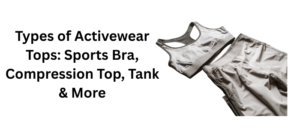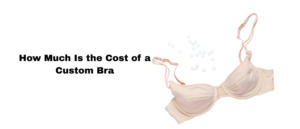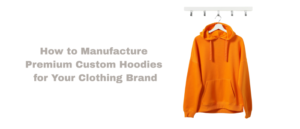Jersey fabric is one of the most versatile textiles in modern fashion. The global apparel fabric market was valued at around USD 110 billion in 2023 and is forecasted to reach nearly USD 160 billion by 2032, growing at a CAGR of ~4.2%. This growth reflects the rising demand for breathable and comfortable materials like jersey. From everyday T-shirts and loungewear to activewear and dresses, jersey has become a go-to fabric that balances comfort, stretch, and style. Its adaptability has made it a staple for brands across multiple fashion categories.
In this guide, we’ll cover the main types of jersey fabric, their properties, and their best uses. You’ll also learn how apparel brands can source and customize jersey fabrics with Argus Apparel to create collections that are both stylish and high performing.
What is Jersey Fabric?
Jersey fabric takes its name from the Channel Island of Jersey, where it was originally used to make fishermen’s sweaters. Initially, it was made from wool, but over time, cotton and synthetic blends gained popularity. The fabric really gained attention in fashion when designers introduced it into women’s wear, valued for its softness, stretch, and ease of movement.
Unlike woven textiles, jerseys are a knitted fabric, which gives them natural flexibility and comfort. Today, it’s available in different weights, blends, and structures, making it suitable for everything from lingerie and T-shirts to sportswear and outerwear.
Why does it stand out:
- Comfort – Soft and breathable for everyday use.
- Stretch – Flexible, making it ideal for fitted or active garments.
- Versatility – Works across casual, premium, and performance fashion.
Main Types of Jersey Fabric
There are several types of jersey fabric, each with unique properties that make it suitable for different kinds of garments. Understanding these fabrics helps apparel brands, sourcing managers, and designers choose the best material for their collections. Below is a detailed breakdown of the most common options:
Single Jersey Fabric
Single jerseys are the most widely used and versatile type. It is knitted with a single set of needles, giving it a smooth surface on the front and a slightly textured back. Because of its lightweight and breathable nature, it’s a staple in both casual and fashion-forward collections.
- Properties: Lightweight, soft, breathable, slightly stretchy, and affordable.
- Best Uses: T-shirts, lightweight dresses, casual wear, layering tops, and undergarments.
- Why Brands Choose It: Cost-effective, easy to print on, and available in multiple blends (cotton, polyester, viscose).
Double Jersey Fabric
Also known as “heavy jersey” or “double-knit jersey,” this type is made with two sets of needles, creating a thicker fabric with more stability. Unlike a single jersey, it doesn’t curl at the edges, which makes it easier to work with during production.
- Properties: Heavier, more durable, and less stretchy than single jersey, with a smooth finish on both sides.
- Best Uses: Jackets, skirts, trousers, structured dresses, and midweight outerwear.
- Why Brands Choose It: Ideal for garments requiring structure, warmth, and a premium finish.
Interlock Jersey Fabric
Interlock is a type of double-knit fabric where the two layers are interlocked, producing a smooth and identical surface on both sides. It has a dense, stable structure, making it softer and thicker than regular jersey fabrics.
- Properties: Smooth, firm, durable, soft against the skin, excellent shape retention.
- Best Uses: Baby clothes, premium T-shirts, sportswear, uniforms, and sleepwear.
- Why Brands Choose It: Provides a high-quality look and feel, perfect for premium collections and garments that need durability.
Cotton Jersey Fabric
Cotton jersey is made from 100% natural cotton or cotton blends. It’s one of the most common and consumer-preferred fabrics due to its breathability and comfort. Depending on weight, it can range from lightweight casual tops to heavier hoodies.
- Properties: Natural, soft, breathable, moisture-absorbing, and skin-friendly.
- Best Uses: Everyday T-shirts, loungewear, pajamas, hoodies, and casual wear.
- Why Brands Choose It: Eco-friendly appeal, comfortable to wear, easy to print or dye, and perfect for mass-market basics.
Stretch Jersey (Lycra/Spandex Blend)
Stretch jersey combines cotton, polyester, or viscose with elastane (also called spandex or Lycra). The addition of elastane provides excellent elasticity and recovery, making it ideal for body-hugging and performance wear.
- Properties: Flexible, stretchy, figure-flattering, and durable.
- Best Uses: Leggings, yoga wear, sports bras, active wear, swimwear, and fitted dresses.
- Why Brands Choose It: Offers functionality for active wear and athleisure while maintaining comfort and style.
Polyester Jersey Fabric
Polyester jersey is widely used in performance and sportswear because of its durability and wrinkle resistance. It dries quickly and retains its shape even after repeated washes, making it perfect for high-performance clothing.
- Properties: Wrinkle-resistant, moisture-wicking, durable, quick-drying, and lightweight.
- Best Uses: Sports jerseys, activewear, performance clothing, uniforms, and team kits.
- Why Brands Choose It: Affordable, low-maintenance, long-lasting, and perfect for sublimation printing.
Viscose Jersey Fabric
Viscose jersey, also known as rayon jersey, has a silky smooth texture with excellent drape. Its lightweight and breathable nature makes it a favorite for womenswear and flowy garments.
- Properties: Soft, smooth, lightweight, breathable, and drapey.
- Best Uses: Dresses, blouses, skirts, cardigans, and stylish women’s tops.
- Why Brands Choose It: Offers a luxurious, high-fashion look at an affordable price point.
Jersey Fabric Weights & GSM Guide
When choosing between different jersey fabric types, weight plays a major role. Fabric weight is measured in GSM (grams per square meter).
- Lightweight (120–150 GSM): Ideal for T-shirts, lingerie, and summer wear.
- Medium Weight (150–200 GSM): Perfect for dresses, casual wear, and activewear.
- Heavyweight (200+ GSM): Best for sweatshirts, structured garments, and outerwear.
Selecting the right weight ensures garments hold their shape, deliver comfort, and perform as intended.
Also read: GSM in Fabric: What It Is, Why It Matters, and How to Measure It
Custom Jersey Fabric for Apparel Brands
At Argus Apparel, a private label manufacturer, we partner with apparel startups, private labels, and established fashion brands to deliver custom jersey fabric solutions that align with their creative vision and business goals. Our expertise ensures that each collection stands out with the right blend of fabric performance, comfort, and aesthetics.
Whether you’re creating everyday basics, premium activewear, or stylish womenswear, we provide the flexibility and support to bring your designs to life.
What We Offer
- Custom Sourcing
We offer a wide range of jersey fabrics, including cotton jersey, polyester jersey, viscose jersey, and stretch jersey blends. Our team helps you select the perfect option based on garment type, end-use, and brand positioning.
- Low MOQ Production
Perfect for startups and growing labels, we support low minimum order quantities to help you evaluate collections and launch without heavy investment.
- Color & Print Customization
Choose from Pantone-matched dyeing, sublimation printing, screen printing, and digital printing for custom designs, patterns, and branding. This allows you to create unique products that resonate with your target audience.
- Fabric Weight Flexibility
We offer lightweight, medium-weight, and heavyweight jersey fabrics so you can select the GSM that best suits your product category—whether it’s T-shirts, leggings, or sweatshirts.
- End-to-End Manufacturing Support
From fabric sourcing to bulk production, Argus Apparel offers complete support. This includes pattern making, sampling, cutting, sewing, finishing, and quality checks, ensuring your garments meet global standards.
By partnering with Argus Apparel, brands gain access to a reliable jersey fabric manufacturer that understands the balance between fashion trends, functionality, and quality.
Jersey Fabric Customization at Argus Apparel – Quick Summary
| Service Feature | Details | Best For |
|---|---|---|
| Fabric Sourcing | Cotton, polyester, viscose, stretch jersey | Casual wear, active wear, womenswear |
| MOQ Support | Low minimum order quantities | Startups, small collections |
| Customization | Pantone dyes, sublimation, screen & digital printing | Branded apparel, private labels |
| Fabric Weight Options | Lightweight (120–150 GSM), medium (150–200 GSM), heavyweight (200+ GSM) | T-shirts, dresses, sweatshirts |
| Full Manufacturing | Sampling, production, finishing, QC | End-to-end apparel manufacturing |
Conclusion
Jersey fabric remains one of the most essential textiles in modern fashion. With options like single jersey, double jersey, interlock, cotton jersey, stretch jersey, polyester, and viscose, brands can find the perfect match for every category, from casual basics to performance apparel.
By understanding the fabric types, weights, and applications, fashion entrepreneurs can make informed choices for their collections.
Looking to source custom jersey fabric for your next collection? Contact Argus Apparel today for premium fabric sourcing, low MOQ production, and expert apparel manufacturing.










